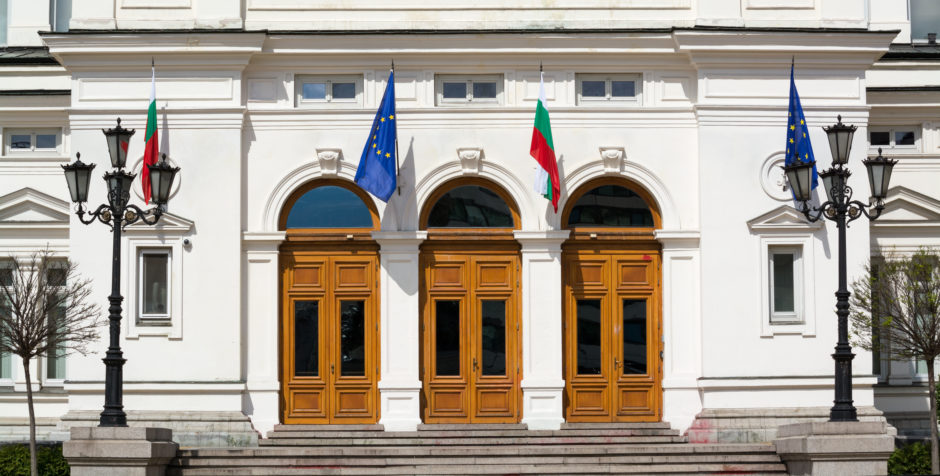Great Victory for Religious Freedom in Bulgaria
A parliamentarian bill amending the Religious Denominations Act of Bulgaria aims at “preventing interference of foreign countries, institutions and persons into religions and religious affairs.” Its official target is the agents of radical Islam. However, in its first draft of October 2018, the bill would have violated the freedom of religion of Christians, especially of Catholics and Protestants, and would have given a power to the State over the internal life of religious communities.
That is why the ACLJ’s affiliate in Europe, the European Centre for Law and Justice (ECLJ), has taken an active part in the fight against this first draft of the bill. Thanks to the international mobilization, the main provisions violating freedom of religion were removed from the law voted on by the National Assembly of Bulgaria on December 21, 2018. This is a great victory.
As Director General of the ECLJ, I had written and addressed a letter of concern to the President of Bulgaria, the head of the government and the heads of parliamentarian groups. This letter had been signed by other members of the Organization for Security and Co-operation in Europe (OSCE) Panel of experts on Freedom of Religion or Belief.
Simultaneous with our efforts, other Christians joined in opposing the first draft of the bill. Representatives of various faith groups met and lobbied Parliamentarians. Big demonstrations were organized every Sunday in many Bulgarian cities. The bill had also sparked growing international attention, thanks to the reactions of the World Evangelical Alliance, the World Baptist Alliance, and even of the United States Commission on International Religious Freedom (USCIRF).
Fortunately, the restrictions to freedom of religion criticized by the ECLJ were all withdrawn from the law that will go into effect on January 1, 2019. The National Assembly of Bulgaria thus brought the new text into conformity with international law, especially the case-law of the European Court of Human Rights (ECHR).
Thank God, the parliamentarians dropped out the heavy restrictions on foreigners who perform religious duties and on donations from outside Bulgaria. These restrictions would have jeopardized part of the educational activities, cultural events, volunteer initiatives, and medical centers of the non-Orthodox Christian communities.
Indeed, financial support from all over Europe and the United States is essential for the daily life of Bulgarian Churches, since it has been their only solution to recover from more than forty years of communism. As shown by the ECLJ, all foreign donations to religious groups do not have the same political implications in Europe: whereas Christianity is financed by organizations from democratic countries, the funding of Islam partially comes from the Gulf States – Saudi Arabia, Qatar, the United Arab Emirates, and Kuwait – Iran and Turkey. A recent report currently being discussed at the Parliamentary Assembly of the Council of Europe indeed targets the foreign funding of Islam as a threat for security (terrorist activity and radicalization), a “means of exerting [political] influence” with some “espionage activities” and a danger for “cohesion and living together.”
Moreover, the law finally adopted on December 21st does not include the violations of the rights of religious minorities planned in the first draft. The original intent of the lawmakers was to limit the right to open religious schools, to train denominational ministers, and to benefit from State subsidies only to communities gathering more than 1% of the population. Such a restriction would have discriminated against the Catholic Church (0.7%), the Protestant denominations (0.9% all together) and the Jewish community (700 members only). In fact, only the Orthodox Christians (60%) and Muslims (8%) represent more than 1% of believers. The ECLJ had denounced this hypocrisy: whereas the bill is supposed to fight radical Islam, its first draft would have paradoxically given more rights to this religion than to Catholics, Protestants and Jews. Following the protest, the Bulgarian parliamentarians changed the method of calculating eligibility for State funding for religious groups in order to avoid any favoritism.
Another piece of good news is that the minimum requirement membership for registration of a religious group has been removed from the law. In its first versions, the bill required the membership of 300 or 3,000 people to obtain the status of judicial entity for religious groups, as well as a formal authorization of a State institution. Such a rule would have had practical consequences on non-registered denominations, which would have been deprived of their right to own property and even of the right to rent a place for religious activities. The ECLJ demonstrated that such an exclusion of small religious communities would have contradicted the European law on freedom of religion.
With these changes, the new Bulgarian law now respects peaceful denominations’ religious freedom. It is interesting to observe that the international mobilization can lead politicians from the whole spectrum to vote a completely different draft two months apart.

